Aremos Paz: ploughing furrows of peace in Colombia
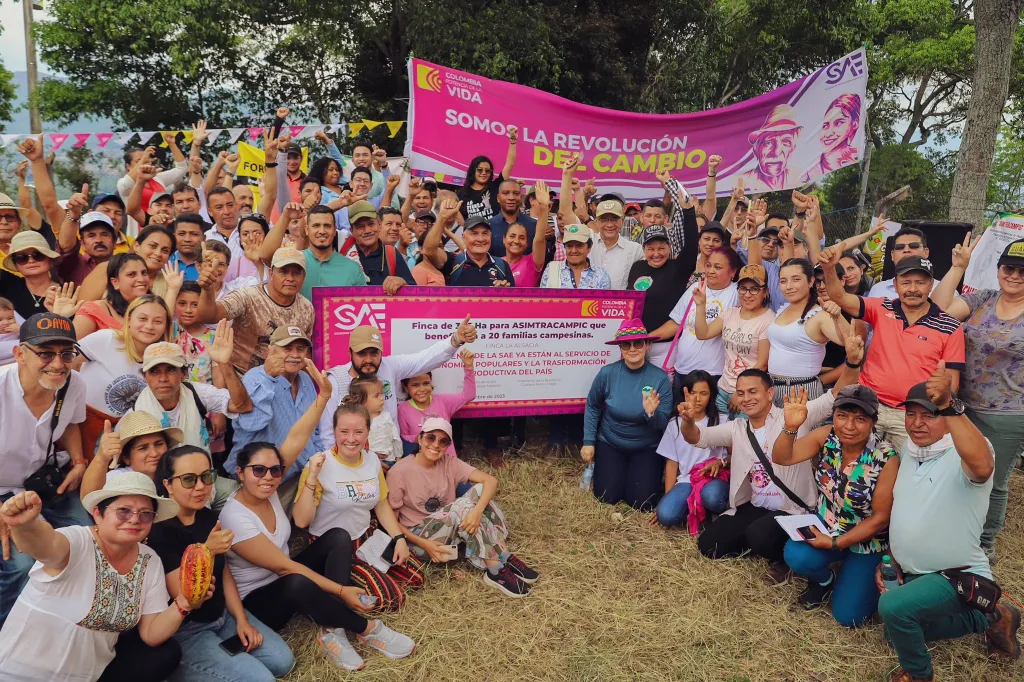
Aremos Paz and its five years of implementation can be summed up in three images that express the moments that have marked, to a large extent, its development as an international cooperation project.
The first image is that of a ship of dreams setting sail with an identified destination, but with a route that was known to be unpredictable.
Aremos Paz initiated during the third year of implementation of the Peace Agreement between the Colombian state and the FARC - EP, with the expectation of being able to give an important boost to the progress of the implementation, especially Chapter 1 (Integral Rural Reform) and Chapter 4 (Solution to the problem of illicit drugs). Already from the joint formulation of the proposal, between the six Swedish CSOs and some local organizations -which later became the driving force behind its implementation-, the challenges that the project would face were evident, in a context where violence was taking new forms, with an increase in the violation of human rights in many remote areas, and an upsurge in violence against social leaders, human rights defenders, and signatories of the peace agreement. This is something that unfortunately Colombia is still experiencing today in 2024, at levels very similar to those that existed immediately before the peace agreement was signed in 2016.
In this context, it was clear to the project’s teams that the central goals were, on the one hand, to vindicate the peasantry as a subject of rights, making visible its importance as a force of organised, diverse, deliberative and proactive civil society. On the other hand, the recognition of the diversity of rural communities and their economies. These two central ideas posed the challenge of being highly demanding, because it was necessary to be flexible and at the same time maintain the standards of the administrative requirements of cooperation. In this sense, it became necessary to adapt actions to what each local organization required and established as priorities, according to its context, and also to its level of maturity or organisational consolidation.
The decision for joint and coordinated action by the six Swedish organisations was, from the outset, a very valuable and significant possibility given the history of Swedish cooperation in Colombia - by the way, this year marks the 150th anniversary of diplomatic relations between the two countries. This dynamic of articulated action involved the implementation of cross-cutting approaches, brought in by the expertise of each Swedish organization, in:
- protection and non-violent self-protection
- gender
- care economies
- agroecology
- solidarity economies
- community-based psychosocial care
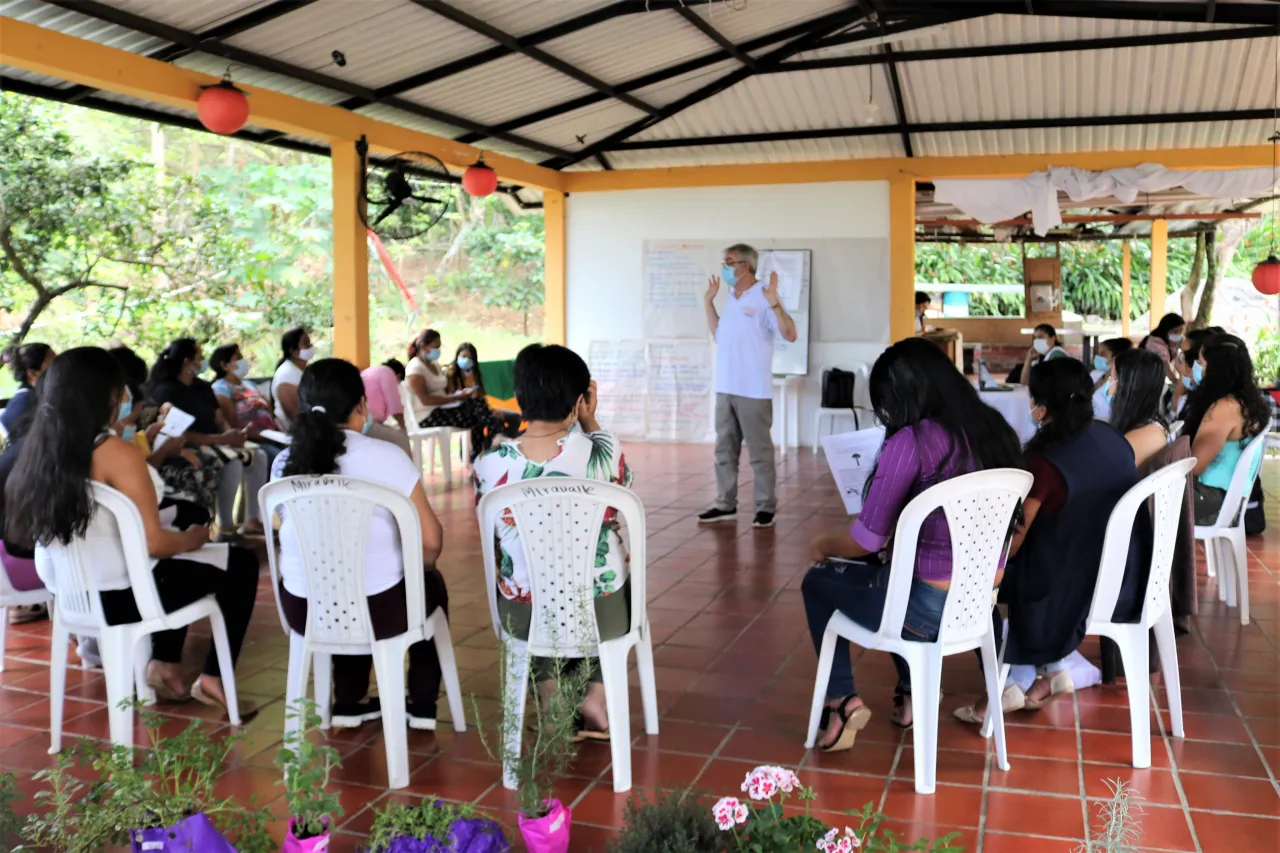
These approaches, together with organizational strengthening from the administrative and financial point of view, were the anchor for the promotion of the productive component of Aremos Paz, which was built in joint workshops with rural organizations, and which was basically an exercise of translation and adaptation of the historical work and struggle of these and other rural organizations. Without organizational strengthening, productivity does not grow, and vice versa, an organization does not grows without the promotion of its productive components. In addition, the capacities installed and strengthened in terms of protection, psychosocial care, gender and cooperativism, for example, were fundamental for the project, and for what came later, in what we identify here identified as a second moment.
The second image or moment of Aremos Paz is one of refuge and containment and is marked by the situation generated by the pandemic, in the context of a national government that slowed down the implementation of the peace agreement and reduced democratic spaces for civil society. In this period of humanitarian crisis, Colombia reached the highest level of effects derived from the armed conflict in recent years.
During this difficult period of confinement, faced with the restrictions to continue acting and accompanying the processes as it had been done during the first months of its implementation, Aremos Paz had to reconfigure its actions, prioritizing the humanitarian and solidarity response so that the organizational processes could survive the onslaught of the health crisis and the armed actors who took advantage of the situation. In this sense, Aremos Paz became a kind of refuge to respond in the best possible way to the basic survival needs of the organizations. It was of course an extremely demanding period for the project teams, which clearly demonstrated the need for structured and robust psychosocial support for these teams as well, one of the lessons learned along the way.
Thanks to the possibility and adaptability of the project, a high percentage of the rural organizations managed to remain in the territory, strengthening themselves and applying the tools to materialize their life projects. Unfortunately, some communities and individuals had to leave their territories due to security issues, for which Aremos Paz acted quickly to help their relocation and protection.
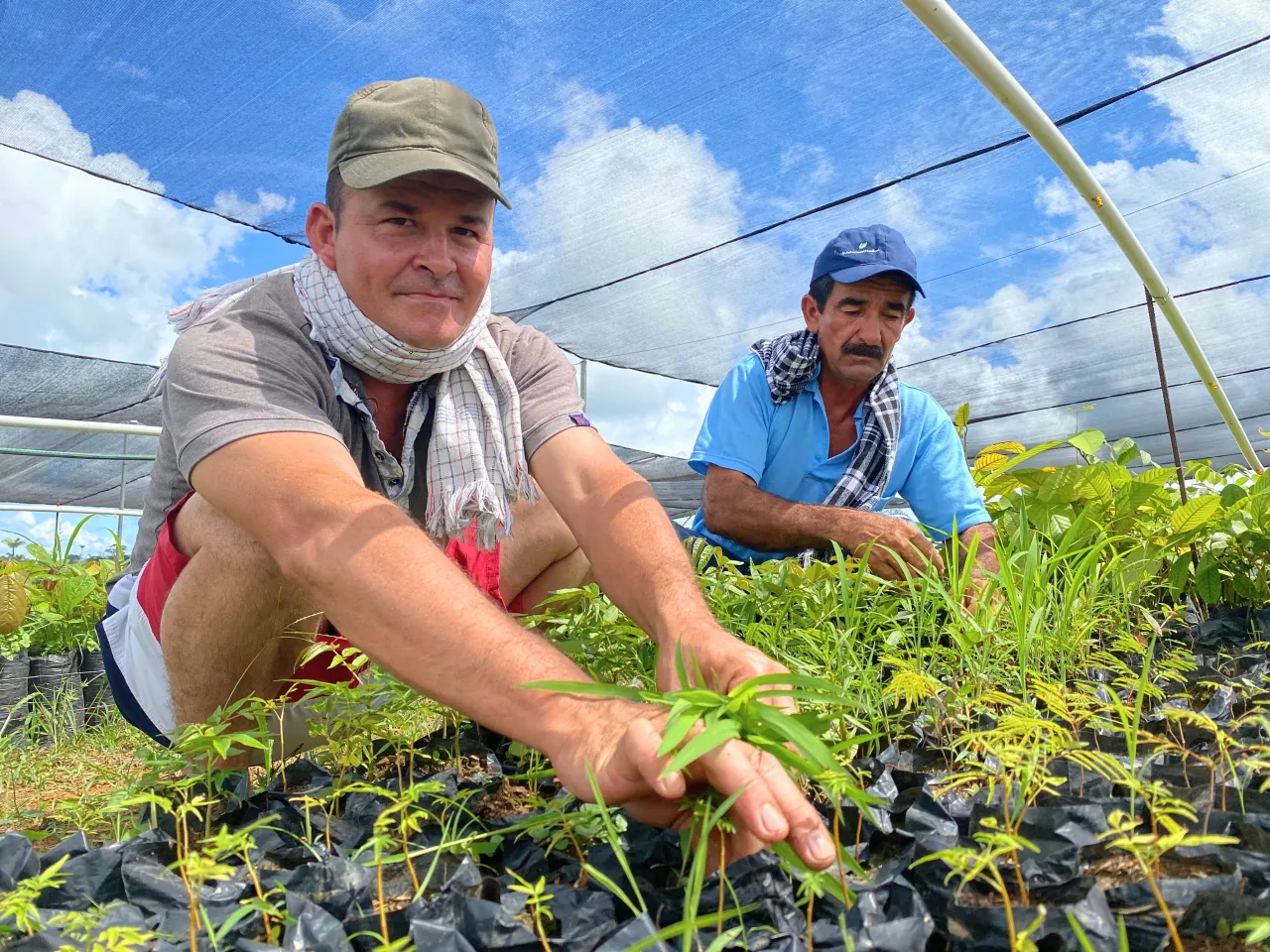
The third image is that of a commonhouse, which symbolizes what Aremos Paz has been up to the present day. Aremos Paz has enabled the reactivation and promotion of bonds between grassroots rural organizations, and has also boosted their productive or technical processes, generating added value, stimulating employment, boosting their economies and strengthening their projection towards change. The productive initiatives that have been supported are not only of production as such, some are associated with transformation and commercialization; there is already a network of alliances and organizations at the service of producer organizations for fair commercialization and responsible consumption initiatives, articulating value chains from a social and solidarity economy. Once again, the adaptability of the project to the specific needs of the organizations becomes apparent, this time regarding productive activities.
On the other hand, Aremos Paz has been a commonhouse that has allowed for the regeneration of the organizational social fabric of peasant, popular and indigenous sectors. A strong example of this is the platform that we know today as the National Peasant and Popular Assembly "Luz Perly Córdoba Mosquera", which has quickly managed to gain a space for participation, dialogue and advocacy with the Colombian national government and some regional and local governments, and projects itself as a legacy bearer, feeding with encouragement and sustainability to the progress achieved in these years of implementation of Aremos Paz.
It is clear that the overall sustainability of the processes supported during the project’s implementation will depend on many factors. From the combination of actions in response to human rights issues and support to productive projects, the project managed, among other things, to generate different alliances that will guarantee the promotion of many productive initiatives; it produced pedagogical materials that will allow to continue replicating exchange and learning processes from the six cross-cutting approaches of the project; It also laid some important foundations so that peasant, indigenous, signatory and women's organizations can take advantage of the opportunities that have opened up with national government institutions, and those that have opened up with regional and local authorities for active participation in development plans.
At the same time, obstacles of different nature will remain, such as the implications of the reconfiguration of the armed conflict for the security of communities and for the rearticulation of the peasant movement, and the uncertainty of what might happen with the results of the presidential elections in 2026.
At ForumCiv LAC, together with our partner SvEOS Diakonia, We Effect, ACT Swedish Church, Swefor and the Lutheran World Federation, we believe that with Aremos Paz we have managed to pave a path that is not easy, but is immensely promising and relevant for Colombia to continue moving towards a society that, from its diversity, is able to close the gaps of inequality and to deal with differences without violence.
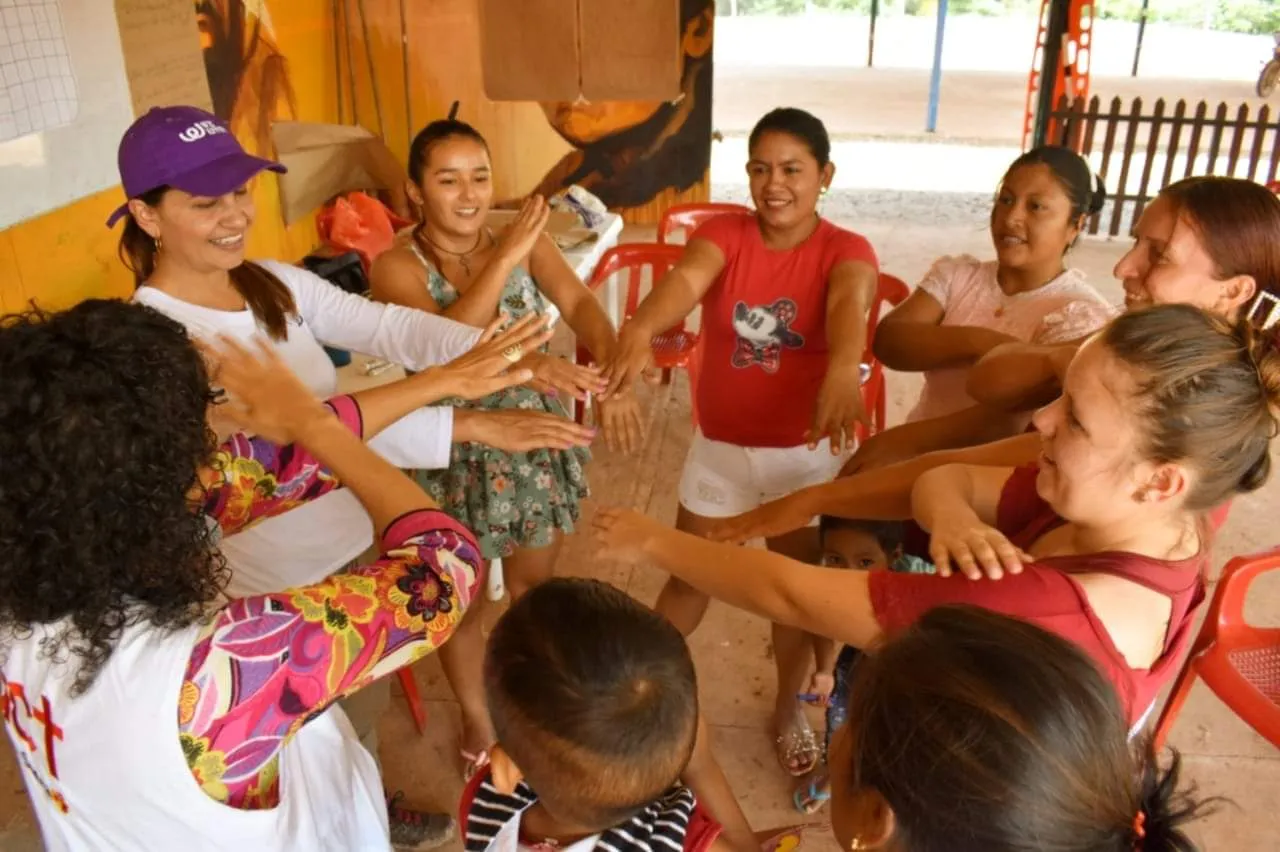
Aremos Paz offers enormous potential for, for example, continuing to replicate institutional processes of training and exchange on cross-cutting approaches; promoting and strengthening the autonomous agenda of rural civil society organizations at a time of enormous social and armed pressures; expanding spaces for advocacy in the framework of integral rural reform, in relation to access to land, the promotion of cooperatives and solidarity economies, agro-ecological food production not only for productive growth and income generation but also for the generation of food autonomy for communities; and achieving real guarantees for the active participation of communities in the planning of their territories, also in terms of total peace. Actions of territorial transformation are central to comprehensive peace negotiations -and we believe that what we have done with Aremos Paz has been precisely that, actions of territorial transformation.
With a joy that does not cease to be somewhat nostalgic, we now deliver the results of these years of collective work of hundreds, thousands of arms and hearts, with the expectation that its momentum will be harnessed and taken up by all people, by international and national civil society organizations and institutions, with the common purpose to promote change, and with the commitment that we will continue to walk together, to continue ploughing furrows of peace in Colombia.
Other recent articles

7 recommendations for EU policymakers after the development in Georgia
After the Law on Transparency of Foreign Influence in Georgia, here are seven concrete actions that EU Decision Makers need to take.

Kenya’s Chief Justice Hon. Martha Koome launches ForumCiv’s report on public policy gaps
“The findings from this research we are launching today stresses the importance of continuous tailormade trainings for all stakeholders involved in policy development from county officials to members...
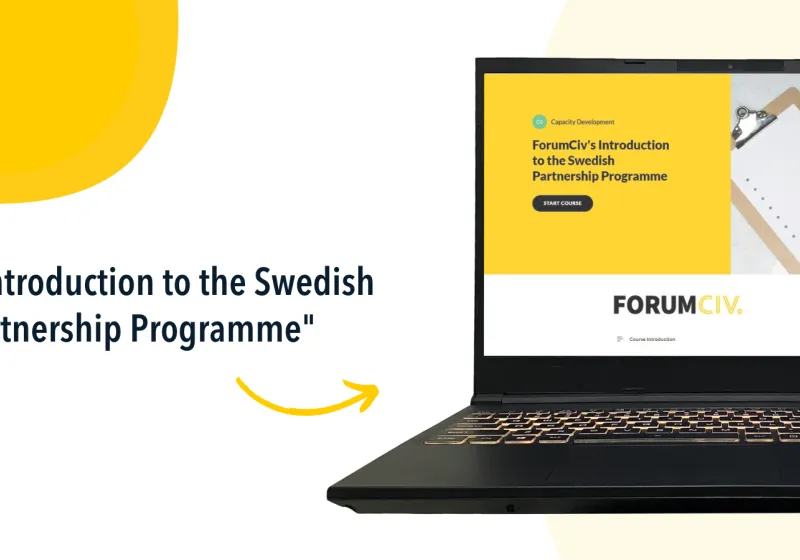
New e-learning course presents the Swedish Partnership Programme
This course is especially relevant to newer organizations and/or those who have experienced challenges in various application processes. It presents the Swedish Partnership Programme.